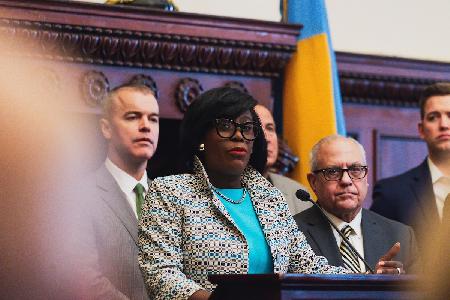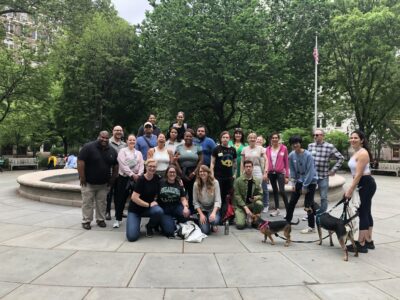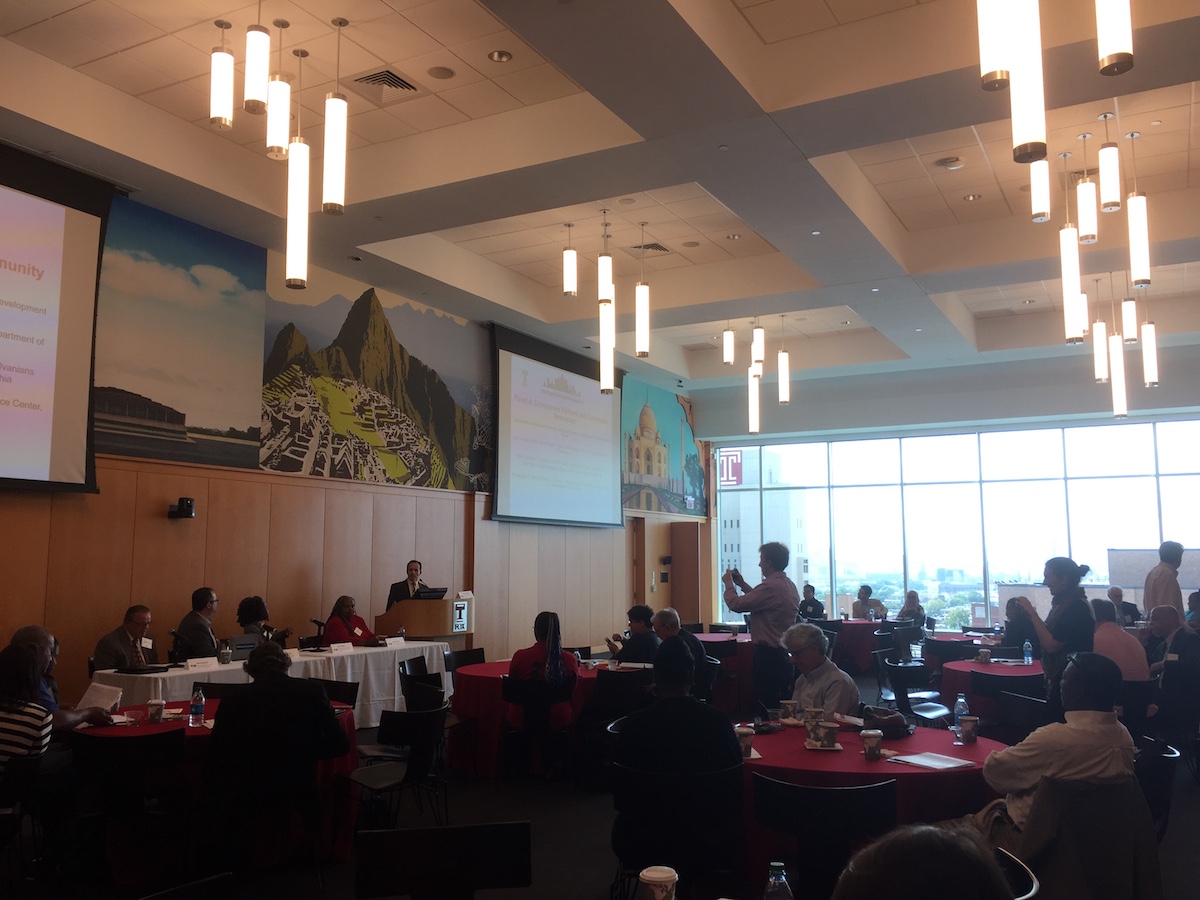Today’s startups and small businesses can be global from day one. Sometimes it just takes a few resources to make the journey less daunting.
Stakeholders from the public and private sectors gathered at Temple University’s Fox School of Business Sept. 26 for Startup Global Philadelphia. This marked the seventh Startup Global event, an initiative of the U.S. Department of Commerce and the Global Innovation Forum meant to provide focused assistance and information to early-stage companies by connecting entrepreneurial ecosystems with government and community resources.
Here are a few of the event’s key takeaways:
Start with what you know
Temple University student Nigel Satenstein started Pinpointer with a group of friends to solve delivery’s “last mile” problem — it’s hard connecting ecommerce sellers with consumers in hard-to-reach corners of the world.
“It all started one day late last summer when I got a call from one of my best childhood friends,” Satenstein said. “He started telling me about his roommate, Sam, who was born and raised in Kathmandu, Nepal, and to this day still does not have a home address.” Once the three friends came up with the concept and created a tool to fill this gap in markets worldwide, Nigel explained how it was only natural to implement their technology in a region that they knew well — Kathmandu.
Take advantage of public- and private-sector resources
Whether it’s connecting with customers or researching new markets abroad, firms on both sides of the fence provide a broad set of tools designed to simplify the process of taking your business global.
Resources such as the Department of Commerce’s Export.gov website make the global journey easier than ever before, and it’s far from the only resource out there. PayPal, best known for its payments platform, also provides a number of free tools to help startups and small businesses reach new markets.
Usman Ahmed, Head of Global Public Policy at PayPal, shared how the company’s Global Sellers Program helps create real localized versions of websites. Rather than simply translating a company’s ecommerce site into different languages, PayPal uses data to determine which colors and phrases work best in certain markets — allowing small businesses to expand to up to 60 markets in a matter of days, and increasing global sales as a result.

right to left: Antonio Ceballos, Director, US Commercial Service, Philadelphia as Moderator; Darlene Atta, International Trade Consultant, Temple University Small Business Development Center in Philadelphia; Lori Cooper, Senior Policy Advisor, Office of the European Union, U.S. Department of Commerce; Peter Gonzales, President and CEO of the Welcoming Center for New Pennsylvanians; Dino Ramos, COO of the World Trade Center of Greater Philadelphia. (Courtesy photo)
Engage professionals to help
When it comes to protecting your innovative ideas, professional advisors, lawyers and government resources can make a huge difference in helping to navigate the processes at home and abroad and avoid potential costly legal fees down the road.
“You have to protect [your idea] before you go anywhere,” said Benjamin Hardman, attorney-advisor at the U.S. Patent and Trademark Office. “Eighty-six percent of SMEs and independent inventors did not know that their United States trademark or patent would not be protected overseas.”
Government resources in the U.S. and embassies abroad can provide contacts for legal advice and provide advice to protecting your ideas around the world.
In the age of global connectivity, international opportunities are limitless for solopreneurs, startups and small businesses. It’s just hard to go it alone.
Join the conversation!
Find news, events, jobs and people who share your interests on Technical.ly's open community Slack

Philly’s IT department fires long-tenured staff amid a high-level shakeup of priorities

Why is it so hard to find entry-level software engineering jobs?

This Week in Jobs: Get out there with 22 new job opportunities available to you!

